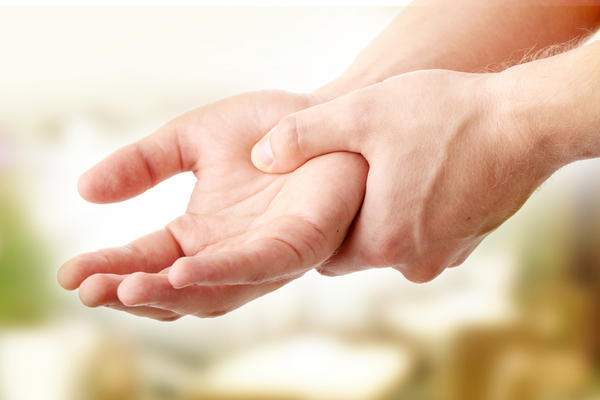A number of things can leave you feeling shaky. It depends on what you have eaten and how your body reacts to certain foods. Our digestive systems are setup to handle a certain amount of carbohydrates, our immune system may fight off certain foods, and not eating enough or too much may cause a reaction. It is important to take note of foods that you eat and the reaction you are having so your doctor will know how best to evaluate this

Causes of Feeling Shaky After Eating
The most common cause of feeling shaky after meal is a fluctuation in your blood sugar levels. However, it may not always be the case. There're other causes as well.
1. Reactive Hypoglycemia
When you eat foods high in carbs, you may experience a spike in blood sugar. This may cause your body to release too much insulin to try and bring down the blood sugar and cause a steep drop in blood sugar after eating. This results in hypoglycemia that can last up until the next meal.
Reactive hypoglycemia is most common in people who have pre-diabetes or issue with their pancreas. It can also occur in people who suffer from liver disease that affects the production of glucagon (a natural sugar produced by the body).
2. Allergic Reaction
An allergic reaction to a food can cause feeling shaky after eating. There are a number of symptoms of a reaction to an allergen besides feeling shaky like:
- Low-grade fever 99.0 ℉
- Nausea and vomiting
- Rash and/or hives
- Swelling of the face, lips, and/or throat
- Diarrhea
- Taste aversion to offending foods
If you believe you may be having an allergic reaction to a food and have never experienced the symptom before, get to an emergency room for treatment right away.
3. Gluten Sensitivity
If you have celiac disease and are sensitive to gluten, you may develop chills and shaking after eaten foods or products containing gluten. Gluten sensitivity shows up different than an allergic reaction with other symptoms that include:
- Headache
- Brain fog
- Joint pain
- Numbness in the extremities
Keep in mind that gluten contamination can occur in other foods you are eating that do not contain gluten.
4. Caffeinated Foods/Drinks
 Feeling shaky after eating can be due to certain foods and drinks that contain caffeine. If you drink coffee or caffeinated cola with your meals, this can cause a reaction to the caffeine and give you jitters. Foods that contain caffeine usually contain negligible amounts, but if you eat too much of them the amount in your system will increase. Foods that contain caffeine include:
Feeling shaky after eating can be due to certain foods and drinks that contain caffeine. If you drink coffee or caffeinated cola with your meals, this can cause a reaction to the caffeine and give you jitters. Foods that contain caffeine usually contain negligible amounts, but if you eat too much of them the amount in your system will increase. Foods that contain caffeine include:
- Chocolate
- Protein bars
- Decaf coffee
- Non-cola sodas (Mountain Dew, Orange Soda, Surge)
- Coffee ice cream
- Energy fortified oatmeal
- Caffeinated beef jerky
- Caffeinated water
What Can Be Done to Help?
If you know the cause of feeling shaky after eating, there are things you can do to feel better quickly. Try these things to calm your jitters:
1. Eat Protein
If you eat a meal too high in carbohydrates you may experience a blood sugar spike. Protein can help slow the burn of carbohydrates so just eat a serving of protein with any carbohydrates that you eat. If you feel jittery after a high carb meal, follow it with protein as soon as possible. If you eat a stack of pancakes and syrup, try eating some breakfast meat with it or even a spoonful of peanut butter.
2. Keep a Food Journal
If you think you may have a food allergy, keep a journal of foods that you eat. You may have developed a food allergy without knowing it if you've eaten something new. The most common offenders of food allergies are:
- Peanuts
- Berries
- Milk products
- Shellfish
- Eggs
- Tree nuts (walnuts, almonds, pecans, etc.)
- Fish
- Soy
- Wheat and wheat products
- Bananas
If you are unsure of the offending food, keep a journal of everything you eat and how you feel after you eat. Eliminate any offending foods and add them back into your diet one at a time to see which one is bothering you. If you think you have a food allergy, contact your doctor for further testing and treatment.
3. Check Labels for Caffeine
If you are sensitive to caffeine, try to avoid foods that contain caffeine. If your doctor orders you to avoid caffeine, make sure you check labels carefully. Also, try to eat a full meal before drinking any caffeinated drinks to slow the body's absorption.
Should You Worry?
For the most part, feeling shaky after eating is nothing to worry about. If you have an issue with reactive hypoglycemia or a severe food allergy, you will need to see a doctor.
- Reactive hypoglycemia may be a sign that you are having blood sugar issues that may lead to diabetes. It may also signal disease with your pancreas or your liver. This will need medical attention and treatment as soon as possible.
- A severe food allergy can be life threatening. If you go into anaphylactic shock, you may lose your ability to breathe if your airways swell shut. Watch for signs of food allergy along with shakiness including facial swelling, hives, low-grade fever, vomiting, and swelling of the throat.
